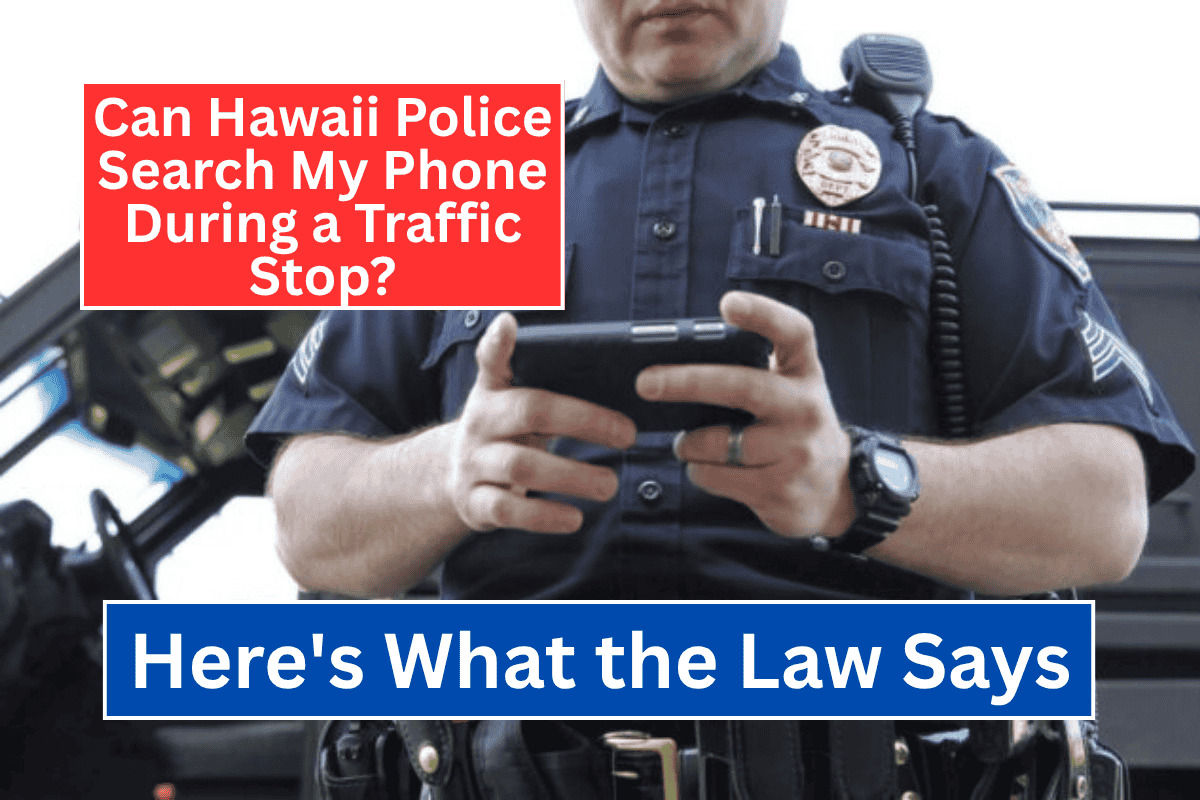Getting stopped by the police can be stressful, especially if you’re not sure about your rights. In Hawaii, understanding what police can and cannot do during a traffic stop helps protect you from giving up your rights or getting into legal trouble.
This guide explains whether police can search your phone, what your rights are during a stop, and what to do if they violate those rights.
Can Hawaii Police Search Your Phone During a Traffic Stop?
No, police in Hawaii cannot search your phone without your permission or a proper warrant. Your phone is protected under privacy laws. If the police ask to check your phone, you can politely say no. Never give them permission to search your phone unless they have a search warrant signed by a judge.
Your Rights During a Traffic Stop in Hawaii
While in a Car
If you’re stopped while driving, here are the main rights you have:
You can ask why you were stopped. Police need a valid reason, called “probable cause.”
You don’t have to answer any questions about where you were or what you were doing. Just say, “I choose to remain silent.”
You don’t have to take a field sobriety test. Refusing might lead to a license suspension, but you won’t be charged with a crime just for saying no.
You can ask for a lawyer and stop answering any questions until they arrive.
While Walking
If you are stopped while walking:
You can ask if you’re free to leave. If you’re not being arrested or detained, you can walk away.
You can stay silent and not answer any questions.
You have the right to take videos or pictures of police, as long as you don’t get in their way.
Police can’t take your phone or camera unless they have a warrant.
What Are Your Responsibilities?
To stay safe and avoid trouble, follow these steps during a police stop:
Keep your hands where the officers can see them.
Stay calm and polite, even if you feel upset.
Never lie to the police—it’s a crime.
Don’t resist arrest or block officers from doing their job.
Don’t sign any papers or give permission to search anything, including your phone.
Ask for a lawyer before you talk about anything.
What to Do If Your Rights Are Violated
If you believe police officers violated your rights, take these steps:
Write down everything you remember about the stop.
Get contact info from any witnesses.
Note the badge numbers and patrol car numbers of the officers involved.
Take pictures if you were injured.
Get medical help if needed.
File a complaint with Hawaii’s Internal Affairs or civilian complaint board.
Call a criminal defense lawyer to discuss your next steps.
Knowing your rights can make a big difference if you’re stopped by the police in Hawaii. You’re not required to let officers search your phone without a warrant, and you can refuse to answer questions until you have a lawyer.
By staying calm, being respectful, and protecting your rights, you can avoid bigger problems. If your rights are violated, act quickly by documenting everything and getting legal help.












